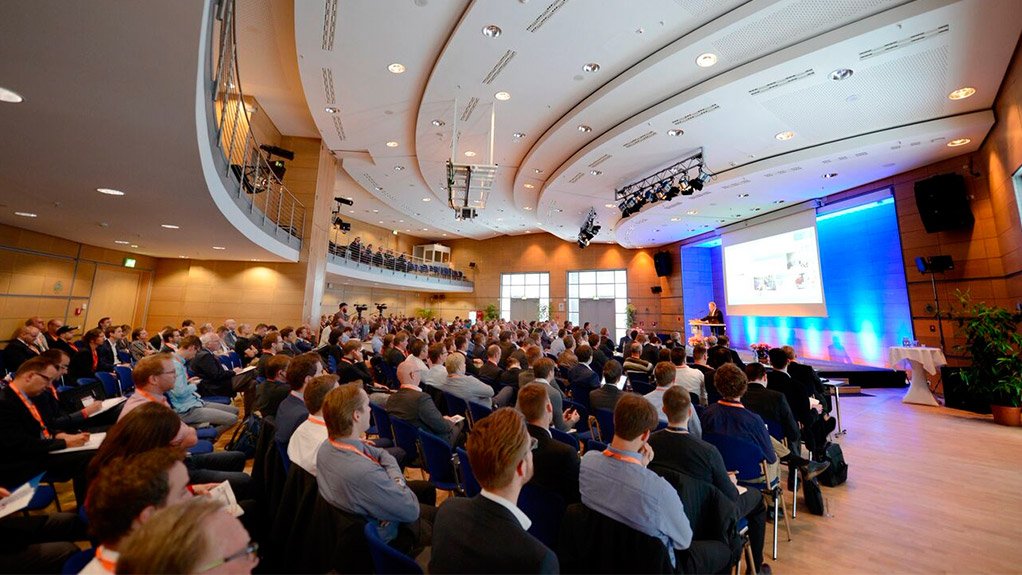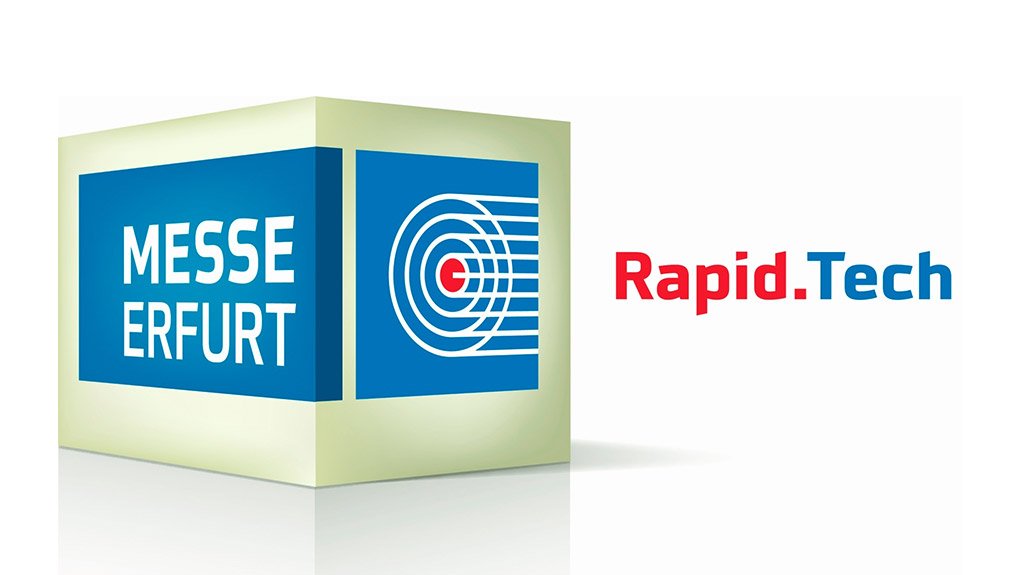- Additive Manufacturing (0.23 MB)
/ MEDIA STATEMENT / This content is not written by Creamer Media, but is a supplied media statement.
There is still much potential for optimisation within the new technologies of Additive Manufacturing (AM) and 3D Printing. This ranges from design and development, processes and materials right through to the aftertreatment of components manufactured using AM. The “Science” trade forum at Rapid.Tech in Erfurt presents the latest findings from science and research as a basis for further developments and innovations. The international trade show and conference for Additive Manufacturing is among the world’s foremost events in this field and will take place from 14 to 16 June 2016.
Additive Manufacturing and 3D Printing are two of the key technologies for more efficient, more sustainable and more flexible production across multiple industries. “To fully exploit the potential of these still technologies, the further development of existing solutions and innovations along the entire process chain are required”, describes Professor Gerd Witt, Institute Director, Chair of Manufacturing Technology at the University of Duisburg-Essen, the demand for action. The long-standing member of Rapid.Tech’s advisory board is in charge of the programme of the “Science” trade forum at the 13th Rapid.Tech in Erfurt on 14 and 15 June 2016. This conference area is the platform for scientists to present latest research and project results.
“The forum enables scientists and employees from research and development departments to intensively exchange views on the current state of research and approaches to solutions, and to discuss their possible implementation in industry,” adds Witt. The agenda of the two-day forum includes 14 peer-reviewed lectures which will be simultaneously translated (German<>English), like all presentations at the Rapid.Tech conference.
Presentation topics will include the increase of build-up rates with the material Ti6Al4V by high-power selective laser melting, and strategies to attain a constant volume build-up in Additive Manufacturing by using laser powder deposition welding. Also on the agenda are talks about the reduction in surface roughness of metal components manufactured using AM with the help of enhanced electrolytic smoothing, and the chemical aftertreatment of the surfaces of components manufactured from Ultem 9085. Machine-specific cost drivers in Additive Manufacturing using laser melting will also be discussed. One presentation will address the system dependency of optimal process parameter settings for laser sintering different thermoplastics. Another will illustrate actions and measures for optimising the geometric accuracy of laser-sintered components. The results of an examination of how powder influences the SLM process and the resulting product costs will be presented.
There will also be a presentation on a model for optimising SLM processes, which considers indicators such as the quality of the whole process, process failures, adherence to the time schedule and powder waste, among other things. Using the example of a hub carrier, which was originally designed to be a cast component, the adaptation for selective laser melting by means of a design based on effective areas will be described. One contribution will discuss systematic component design for Additive Manufacturing according to the principles of bionics. New developments for the process-adjusted characterisation of the flow behaviour of powdery raw materials for beam melting processes will be presented and compared with established test methods. The programme includes an overview of different methods for the functionalisation of the gas phases of particular raw materials, the use of these methods for polymers and metals as well as the effects on the manufacturing process. One presentation will deal with the thermal and optical behaviour of powders which are functionalised with an additive for subsequent laser direct structuring (LDS) and are processed by means of selective laser sintering.
An in-depth professional exchange on specialist AM topics will be possible at the 13th Rapid.Tech, international trade show and conference for Additive Manufacturing, thanks not only to the well-established trade forums “Design”, “Aviation”, “Tools”, “Medical Technology” and "Dental Technology" and the User’s Conference, but also the new conference areas of “3D Metal Printing”, “Additive Contract Manufacturing”, “Electronics” and “Automotive Industry”. “With the expanded conference programme and the extended, three-day duration of Rapid.Tech, we are keeping abreast of the latest developments in Additive Manufacturing and 3D Printing,” explains Wieland Kniffka, CEO of Messe Erfurt. The complete conference programme is available at www.rapidtech.de
Thanks to its unique combination of trade show and specialist conference, Rapid.Tech in Erfurt is among the world’s foremost events in the field of Additive Manufacturing and 3D Printing. For the fourth time FabCon 3.D, Germany’s 3D Printing fair for semi-professional users and prosumers, will be held in parallel with the event.
Edited by: Creamer Media Reporter
EMAIL THIS ARTICLE SAVE THIS ARTICLE
To subscribe email subscriptions@creamermedia.co.za or click here
To advertise email advertising@creamermedia.co.za or click here















